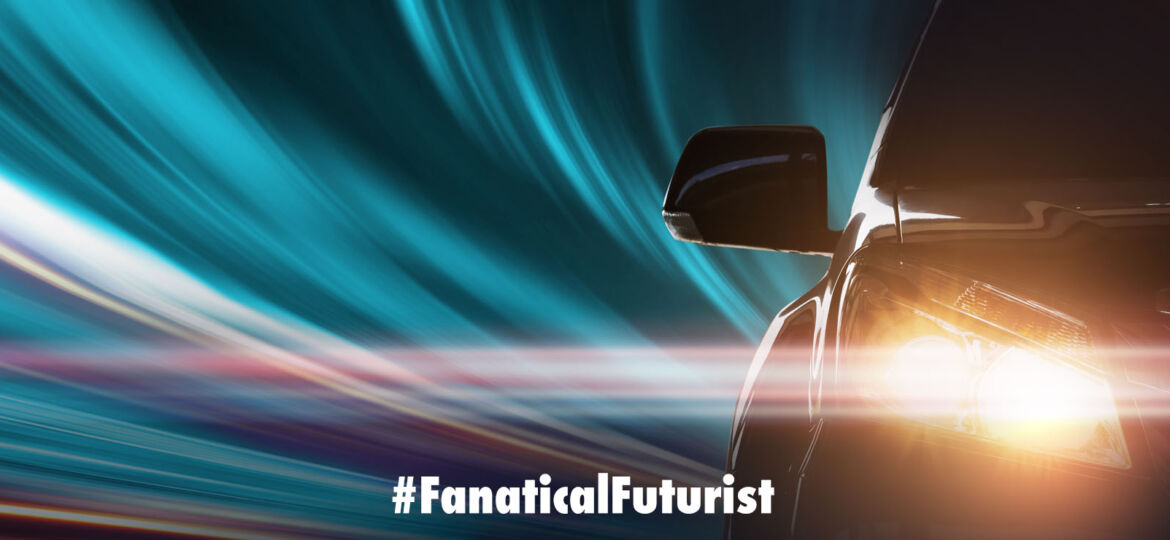
WHY THIS MATTERS IN BRIEF
Electric vehicles can takes ages to charge – but solutions are on their way …
 Love the Exponential Future? Join our XPotential Community, future proof yourself with courses from XPotential University, connect, watch a keynote, or browse my blog.
Love the Exponential Future? Join our XPotential Community, future proof yourself with courses from XPotential University, connect, watch a keynote, or browse my blog.
A Lithium Ion (LiON) electric vehicle battery that you can charge in under a minute? It’s the holy grail for electric car users frustrated by the long recharge times for their vehicles, and it may be about to become a reality as UK based company Nyobolt brings out an ultrafast charging battery based on Niobium rather than traditional LiON.
Even with the fastest chargers, it takes at least 15 minutes — and often several hours — to power up and electric car. But, Nyobolt’s batteries would make recharging an electric car as fast as refuelling a petrol vehicle.
There is some bad news though. While the company on Thursday said it had come out of stealth-mode and raised a $10m Series A round led by IQ Capital to help commercialise the technology, consumer cars are not likely to be the first target market for the company.
Sai Shivareddy, co-founder and CEO, says Nyobolt is likely to start with more niche areas such as Formula E racing cars, fleets of commercial vehicles and possibly even eVTOL flying cars. The Niobium batteries could be crucial for electric aircraft, as they are able to provide a much more powerful burst of energy than their Lithium-Ion counterparts which is necessary for electric aircraft to take off vertically. Although, that said, MIT recently showed off a brand new “boostable” Lithium-Ion battery that does that too so that might not be the differentiator the company’s hoping for.
“The batteries could be used in any car but it makes more sense to start with premium, high-performance uses, rather than the mainstream car market,” says Shivareddy.
The Niobium batteries are also likely to be around 2 to 3 times the price of a standard EV battery — a similar price to the high-performance batteries in the market today, ruling them out of the mass market at least at first.
Customers willing to pay this premium could include fleet operators looking to minimise the downtime of their vehicles and public transport operators, Shivareddy said.
In addition to being faster to charge, the Niobium batteries have a longer life span than Lithium-Ion batteries, do not degrade in extreme temperatures in the same way that Lithium-Ion batteries do, and are much less likely to catch fire.
Nyobolt, which developed out of years of research at the University of Cambridge led by Shivareddy and world-renowned battery materials expert, Professor Clare Grey, now has a team of 25 people. It will use the new funding to expand the team and expand their materials development facility in Cambridge. The first commercial pilots are expected to begin within a year.
Developing better batteries for different use case is one of the urgent problems that need to be solved if we want to make our energy more sustainable. There are few batteries, for example, suitable for storing energy on the electric grid.
“Grid-scale batteries technically work, but there is a question of whether they are commercially viable. Ultimately, we have so much more to do in the field of batteries, if we can tackle fast charging that is tackling one small part of it,” said Grey.
Meanwhile, other companies developing faster charging batteries include Bristol University with their polymer batteries that also charge in under a minute, Skeleton Technologies which is combining some elements of ultracapacitors with conventional “wet” batteries, and Tesla which is developing “tabless” batteries that would improve and electric car’s range and power. So, as good as Nybolts new battery might sound, it’s got a lot of good competition so we’ll see how it gets on …
















